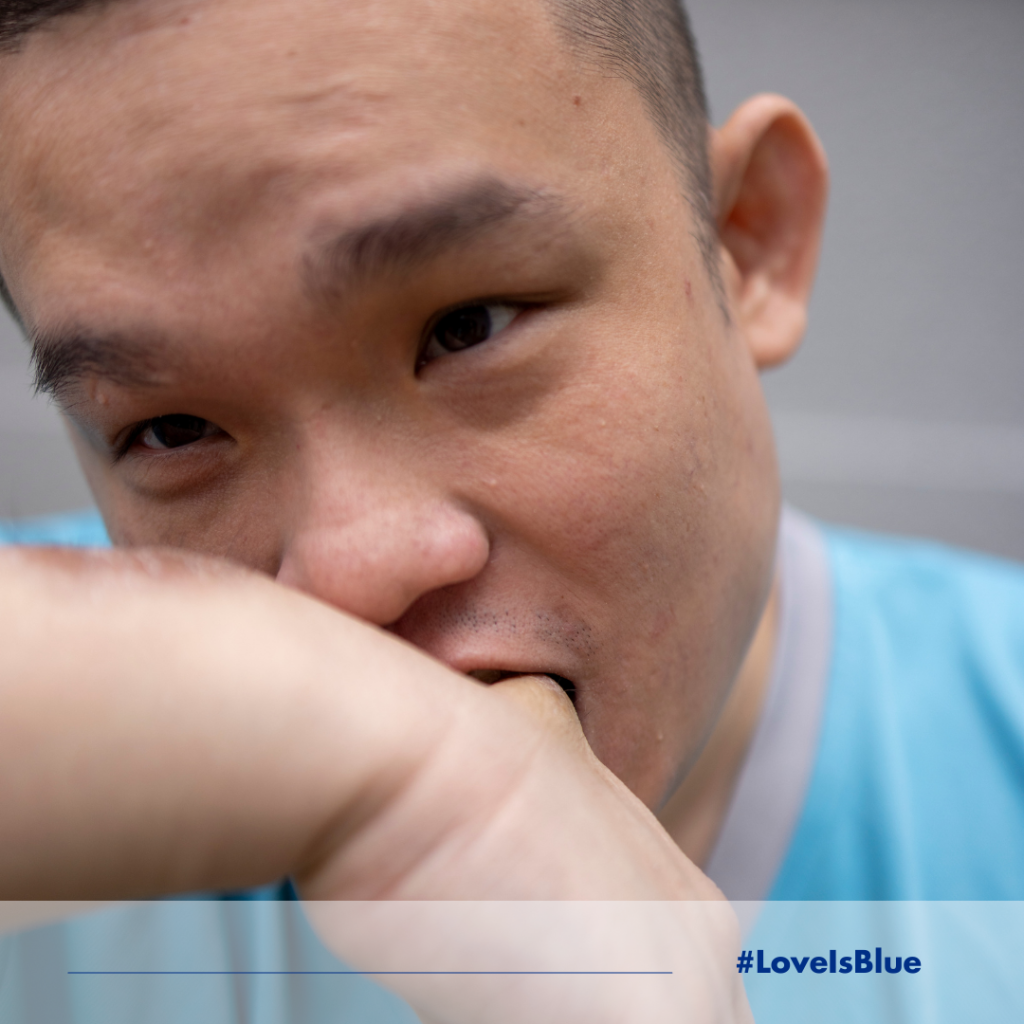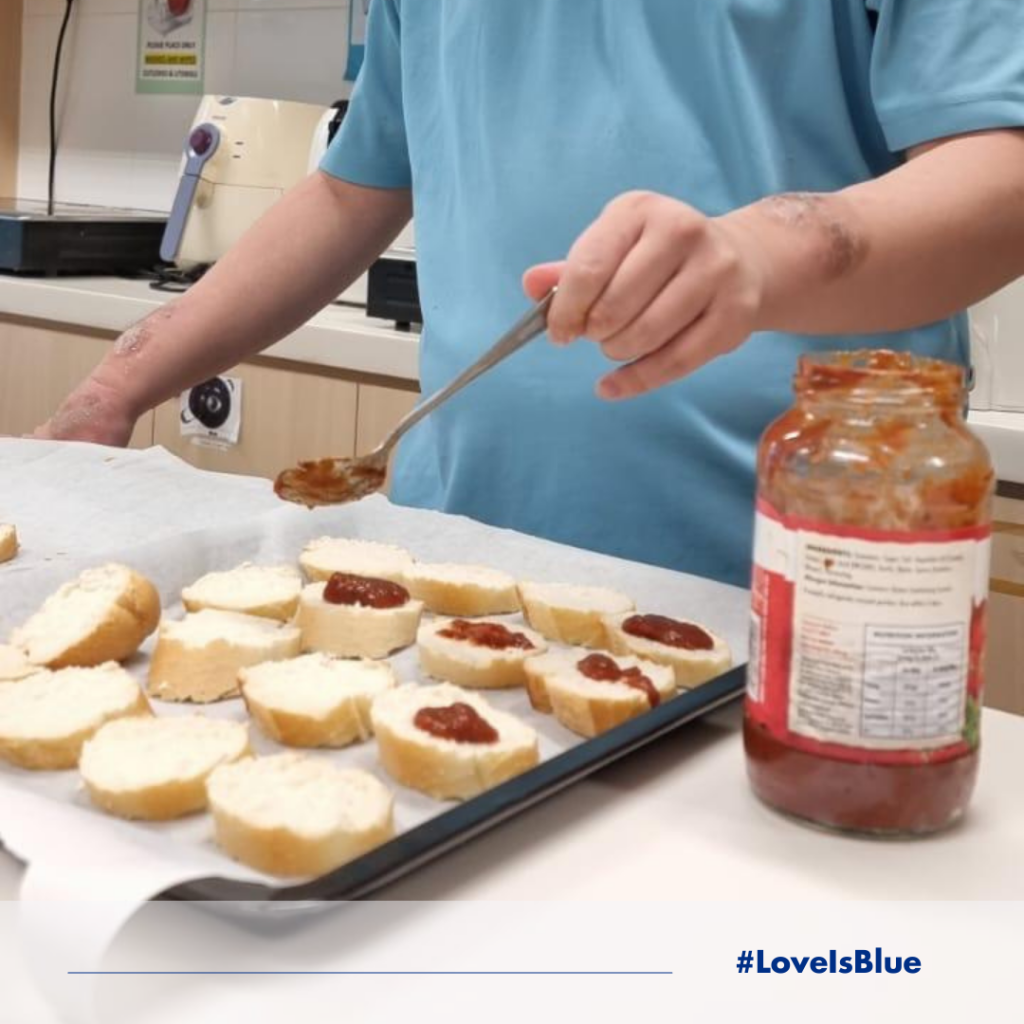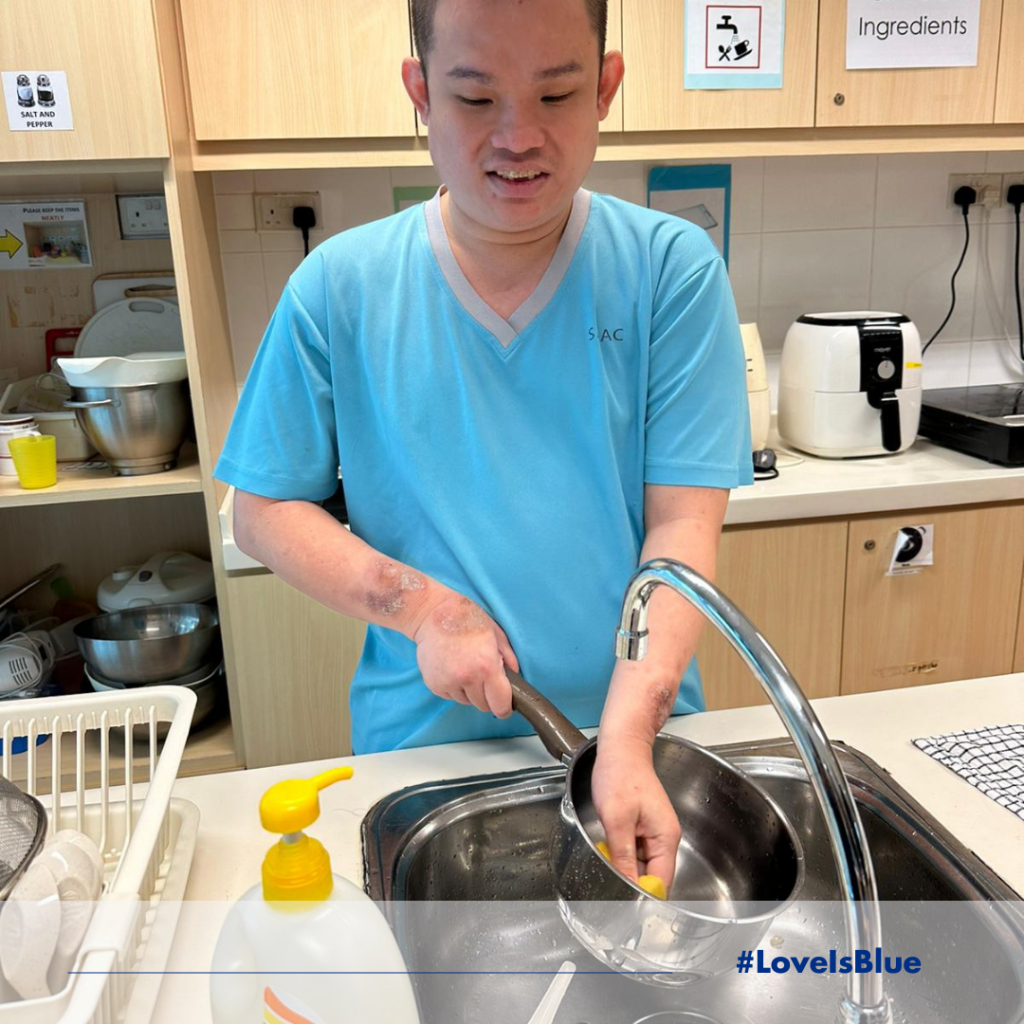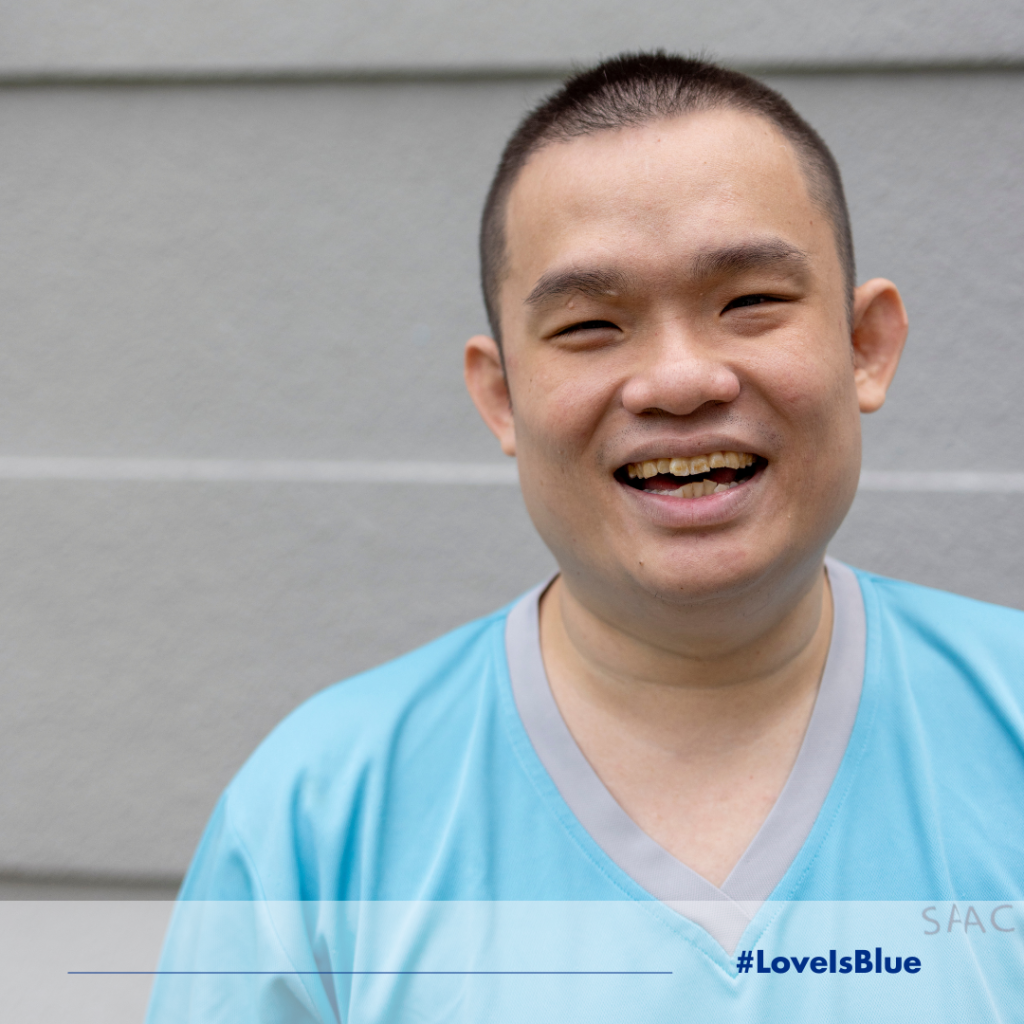It is hard to look at the thick calluses covering Alfred’s forearms without feeling a whole gamut of emotions – like shock, pity, curiosity and even fear. The scars are physical manifestations of daily self-injurious behaviour over his 34 years of life.

Alfred is a non-verbal adult with ASD and he bites himself as a means of communication. It normally happens when he wants to express his unhappiness, when he does not want to do a certain activity or when he is unwell. For example, he might bite himself when it is time for walking as he does not like to exercise. Certain days he bites a lot more than others, but he does it pretty much on the daily.
For his Coach at the Day Activity Centre where he attends each week day, Kavithira says it is one thing to shield him from external harm, it is quite another to protect him from himself, “Especially in the beginning, it was hard for me to look at the scars because I know they must hurt. As much as I want him to stop hurting himself, sometimes acknowledging his feelings is the best I could do. Just like you and I, he wants to be understood. This is a way for him to get his point across.”

Self-injurious behaviour (SIB), such as biting, head banging, scratching and slapping, is a behaviour engaged by some persons with autism. When out in public, SIBs can trigger certain reactions ranging from curious looks from strangers speculating about how the bruises and scars came about, to kerfuffles resulting from misunderstandings. In Alfred’s case, lately, he has been encountering a particular bus driver who would refuse to stop for him and his helper due to his “behaviour”.

Kavithira and the team at SAAC are constantly tweaking their plan to teach him more appropriate ways of conveying his feelings, based on the information they have collated on Alfred since he joined the DAC in 2006, “Using the Positive Behaviour Support (PBS) approach, we are working together with the psychologist to target his self-injurious tendencies. With the data we have, we are trying different methods to motivate him, such as by using his favourite motivator – food. We will keep trying to find something that yields even the slightest improvement.”

As a client, Alfred is a joy to coach, according to Kavithira, “He is very good at household chores. He helps out a lot during cooking sessions by washing and drying the dishes, and he’s diligent about keeping them in the right places too. He is also very friendly, he usually waves to greet people which always makes them smile. And seeing that makes my day.”
——-







